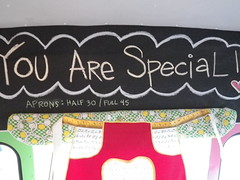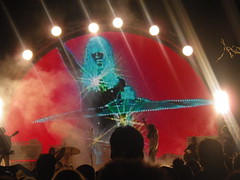This is my friend Wesley. He is in seventh grade and just joined the cross country team. He recently tested for his brown-black belt in karate. He has traveled the globe with his family.
He and I have a few things in common. We both play sports and have close-knit families. We also both live with type 1 insulin-dependent diabetes, which means that every day we get to test our blood sugar on our fingers and take insulin. As of last week, he now uses an insulin pump, a small device which attaches to his body via a canula and delivers insulin hourly.
I met Wesley shortly after he was diagnosed--a mere five months ago. When I told him and his family about the Juvenile Diabetes Research Foundation and our upcoming Walk to Cure Diabetes, he agreed to sit down with me for a few minutes to give those of you in the non-diabetes world an idea of what it is like to live with type 1. Over the next week or so I will upload another video or two of friends who have agreed to share their story. It is my goal that together we can produce an image of active, healthy, engaged individuals who live great lives, but would rather not have to deal with a chronic condition.
If this inspires any gift-giving action, feel free to wander over to www.jdrf.org and search for Team Malibu Pumpers to throw us a buck or two. I look forward to the day I can get my kids a diabetes vaccine. Until then, I'm honored to meet kids like Wesley, who not only work with their families to control their blood sugar, but do a whole hell of a lot more with their life as well.


